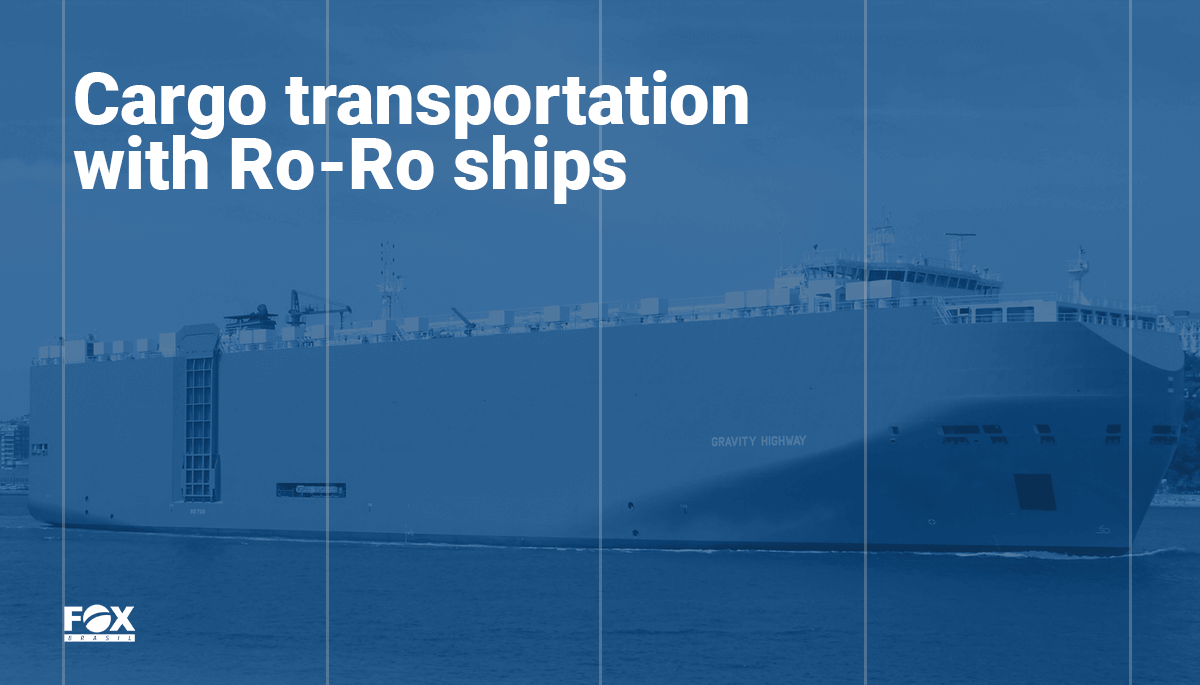Cargo transportation with Ro-Ro ships

Project Logistics
Maritime transportation is one of our oldest ways of transport, and this category continues to develop and grow as the time goes by. Today, we have numerous models of ships that were designed to fulfill the needs of specific kinds of cargo, and Ro-Ro ships are examples of that.
What is Ro-Ro?
Ro-Ro is actually a short way of saying “Roll-on, Roll-off”, which references directly to how the process of loading and unloading cargo works in ships like these. Ro-Ro ships were made to transport wheeled cargo, which includes domestic vehicles such as cars and vans, and industrial vehicles like trucks and tractors, but nowadays these ships are also used to transport Projects Cargo.
How does it work?
We can imagine Ro-Ro ships like a floating parking building, they have built-in ramps that allow the cargo to “roll onto” the ship during the loading process, and “roll off” the ship when they reach the destination.
There are many different transport operations involving Ro-Ro ships, and they depend on each cargo’s requirements. Sometimes, the shipping process is as simple as driving the cargo inside and outside, but there are cases where extra work may be required.
For example, there is a weight limit on the ship’s ramps, and if the cargo surpasses this limit, we will need machinery such as forklifts to load the cargo inside.
There’s also static cargo, that is not self-propelled and can’t be towed inside the ship, and to load them we need equipment such as roll trailers, which are similar to flatbed containers, that can carry the cargo inside.
In a nutshell, to transport cargo with Ro-Ro ships we need to have wheels involved, one way or the other.
Advantages
Ro-Ro ships can save us a lot of time, since the loading and unloading process is quicker than in conventional container ships due to the use of wheels, whether the own vehicle’s wheels or the equipment ones. If we’re talking about a shipment of self-propelled cargo, it requires less handling, which means we save money and we reduce the risks of accidents or damage.
These ships can also be an ally to road freight, since they can transport trucks that are carrying their own cargo across oceans, allowing them to continue their route at the destination country upon arrival.